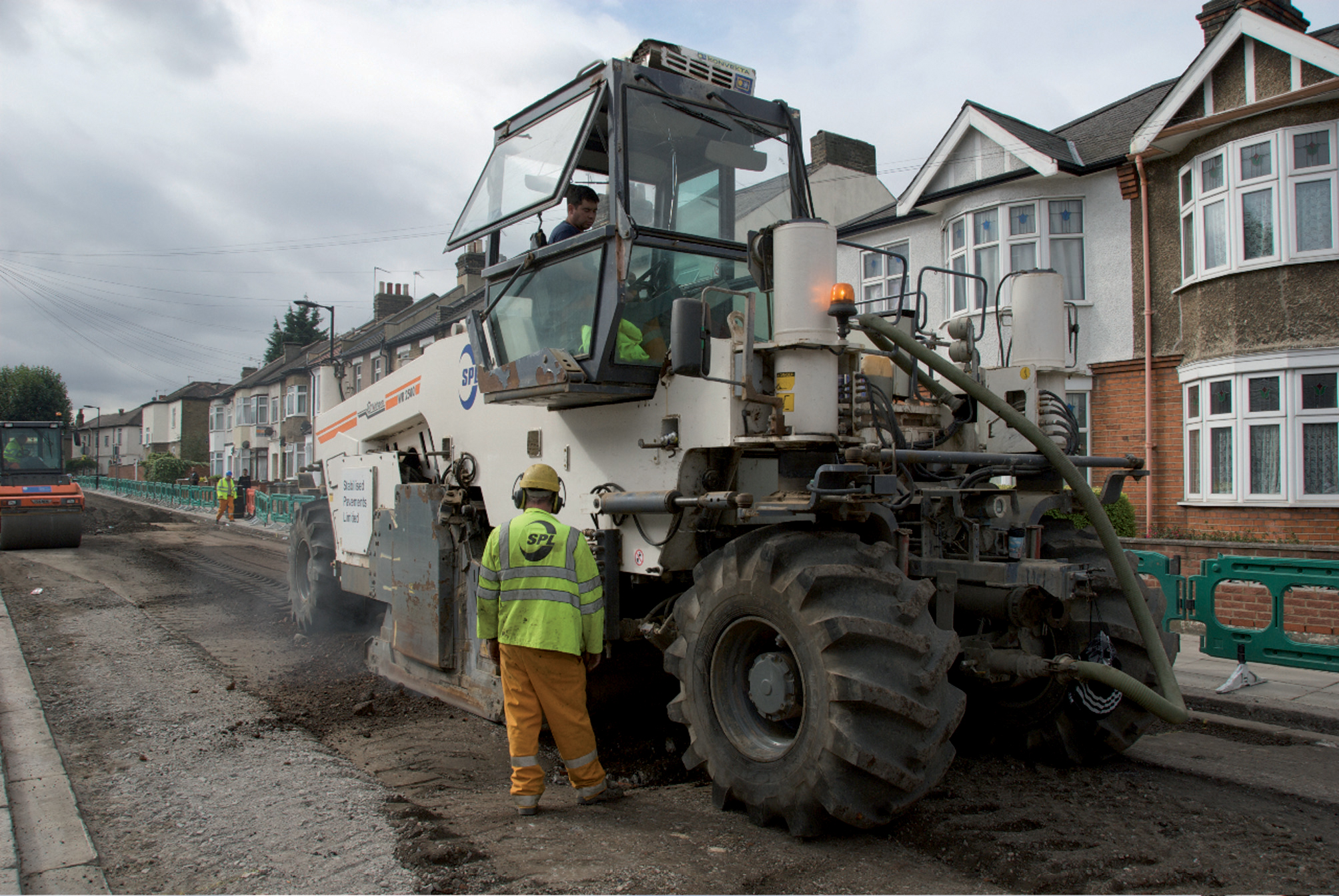
Recycled asphalt is not only environmentally friendly, it is also financially friendly as one UK council demonstrated on a recent road reconstruction project.
Road reconstruction techniques that reduce the cost by a quarter, cut the length of works by over a half and save 9tonnes of CO2 emissions sounds too good to be true, doesn't it? But a recent resurfacing project carried out by the London Borough of Newham in the UK managed to achieve just that through use of in situ recycling.
Repairing the damaged road, using conventional reconstruction techniques, would have cost around £320,000 (€370,000) and taken about seven weeks to complete. By adopting the in-situ recycling process Newham was able to eliminate about 90 lorry movements and complete the carriageway repairs in just three weeks at a total cost of around £240,000 (€277,000).
The Council's highways department, together with its consulting engineer
Jacobs carried out a detailed site inspection with ground penetrating radar and core testing of the 650m long carriageway. Jacobs also produced the design philosophy of in-situ recycling just the central, heavily trafficked strip of the road and inlaying the less trafficked edges, together with pavement design, including materials and thickness.
Newham Borough Council's term maintenance contractor F M
For the in-situ recycling in Newham Stabilised Pavements used its 500kW Wirtgen WR2500 Recycler with a multi-tooth rotating drum cutter. The machine can rotovate a road to full depth while simultaneously delivering accurately metered quantities of water, bitumen emulsion or foamed bitumen into the mixture to strengthen and rejuvenate damaged pavements in compliance with clients' specifications. But on Dersingham Avenue Stabilised Pavements used a blend of Ordinary Portland Cement with pulverised fuel ash.
SPL started by pulverising the damaged road pavement to the required depth of 250mm. This was followed by reshaping with a motor grader and lightly compacted with a
During the process the independent materials testing laboratory Bureau Veritas took samples to test and verify the design recipe. The rejuvenated and strengthened road base material was then reprofiled and levelled with the grader, prior to several passes of the Hamm roller to finally compact the strengthened road base to 95% of refusal density.
Newham's Term Maintenance contractor F M Conway then followed on overlaying the full 6.6m width of Dersingham Avenue with a 60mm thick asphalt binder course followed by a 30mm surface course for a full and final return to traffic. "Newham opted for in-situ recycling because it was a lot faster and much cheaper than conventional reconstruction," says F M Conway senior contracts manager Paul Padfield.RSS













